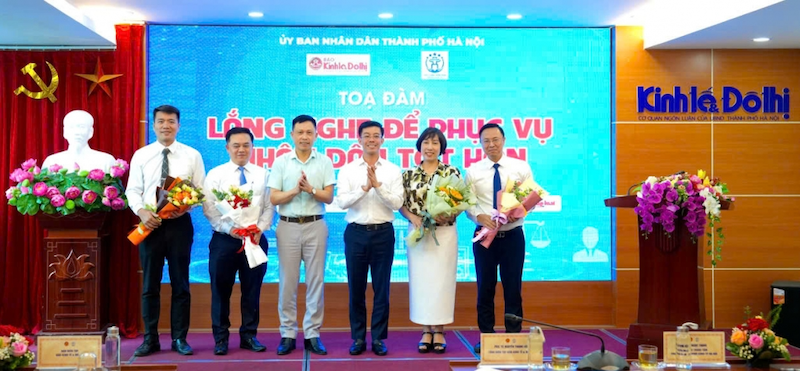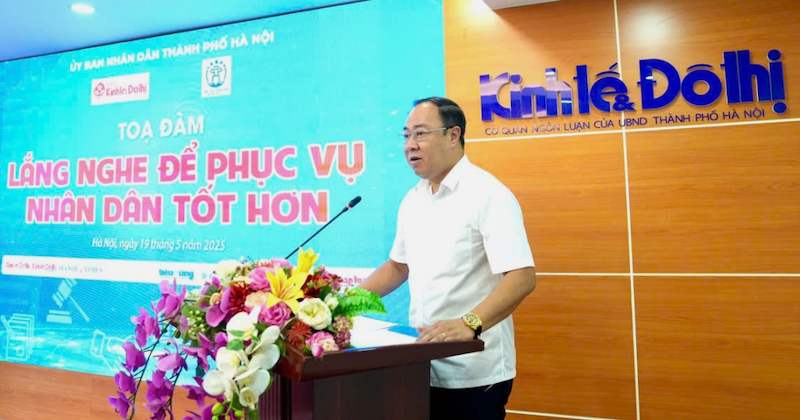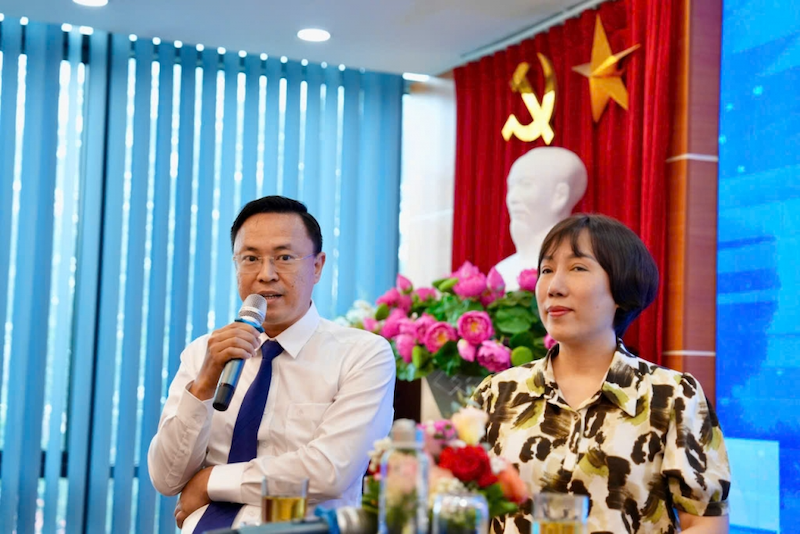Hanoi puts citizens at heart of public service reform
Hanoi’s people-centered administrative reform, driven by digital transformation and service innovation, is setting a strong example for local governance nationwide.
THE HANOI TIMES — Hanoi is stepping up efforts to build a modern, transparent public administration system, placing citizens and businesses at the heart of its reforms. The city aims to improve efficiency, accountability, and accessibility in public services, making it easier for people and companies to interact with government agencies.
This goal was reinforced at the seminar titled “Listening to Serve the People Better” held on May 19, jointly organized by the Hanoi Public Administrative Service Center and Kinh te & Do thi (Economic & Urban) Newspaper.
The seminar marked the 135th birth anniversary of President Ho Chi Minh (May 19, 1890-2025) and looked ahead to the 100th anniversary of Vietnam Revolutionary Press Day. The event showcased Hanoi’s commitment to developing a modern, transparent public administration centered on citizens and businesses.
The seminar served as a platform to address challenges and propose solutions for improving the quality of public services and advancing Vietnam's administrative reform agenda. Participants offered solutions to tackle challenges in public service delivery, with the goal of improving Hanoi’s Public Administrative Service Center and advancing the overall modernization of Vietnam’s public administration.

Prof. Dr. Nguyen Thanh Loi, Editor-in-Chief of Kinh te & Do thi Newspaper (third from left), and Cu Ngoc Trang, Director of the Hanoi Public Administrative Service Center (fourth from left), present flowers to the guest speakers at the seminar. Photos: Khanh Huy/The Hanoi Times
Speaking at the seminar, Nguyen Xuan Khanh, Deputy Editor-in-Chief of Kinh te & Do thi Newspaper, emphasized that Hanoi has actively implemented the national strategy outlined in Resolution No. 57-NQ/TW, issued on December 22, 2024, by the Politburo.
He said this resolution focuses on breakthroughs in science, technology, innovation, and digital transformation. In alignment with these priorities, Hanoi became the first locality to complete and pilot the model for its Public Administrative Service Center, as guided by Government Resolution No. 108/NQ-CP.
The center’s establishment marks a fundamental shift in governance, moving away from traditional administrative boundaries. By setting up branches in key districts, Hanoi aims to cut administrative processing time and costs while improving access for residents and businesses.

Nguyen Xuan Khanh, Deputy Editor-in-Chief of Kinh te & Do thi Newspaper, deliver his speech at the seminar.
“Central to this reform is a shift in mindset, viewing citizens and enterprises not just as users, but as valued customers. Administrative departments are no longer just service providers but are also responsible for ensuring public satisfaction, transparency, and easy access to services,” said Khanh.
Nguyen Hoang Long, Acting Deputy Director of the Hanoi Public Administrative Service Center’s Customer Support Division, shared insights into a multi-channel support model for businesses. Based on surveys conducted with newly established companies, the center identified common difficulties in accessing public services.
He added, in response, a pilot support model was launched at Branch No. 1 on Vo Chi Cong Street, offering comprehensive services such as tax code registration, company stamp creation, and bank account setup.
“Within just over a month of operation, the model has shown tangible results,” said Long.

Nguyen Hoang Long, Acting Deputy Director of the Hanoi Public Administrative Service Center’s Customer Support Division, responses to questions from participants during the seminar.
Ha Thi Anh Hong, Chief Operating Officer at Maritime Commercial Joint Stock Bank (MSB), praised the initiative, noting that thanks to the new model, the bank now only needs one or two staff members to complete registration processes without waiting in long queues.
In addition to business-focused improvements, the center is also researching new approaches to enhance citizen services. A satisfaction index system has been proposed to the Hanoi People’s Committee, aiming to better assess service quality and adapt care models accordingly.
According to Nguyen Hoang Long, the center’s leadership is committed to embracing digital technologies and artificial intelligence (Al). In partnership with private sector firms, the center is working to introduce an intelligent call center to quickly and accurately respond to public inquiries.












